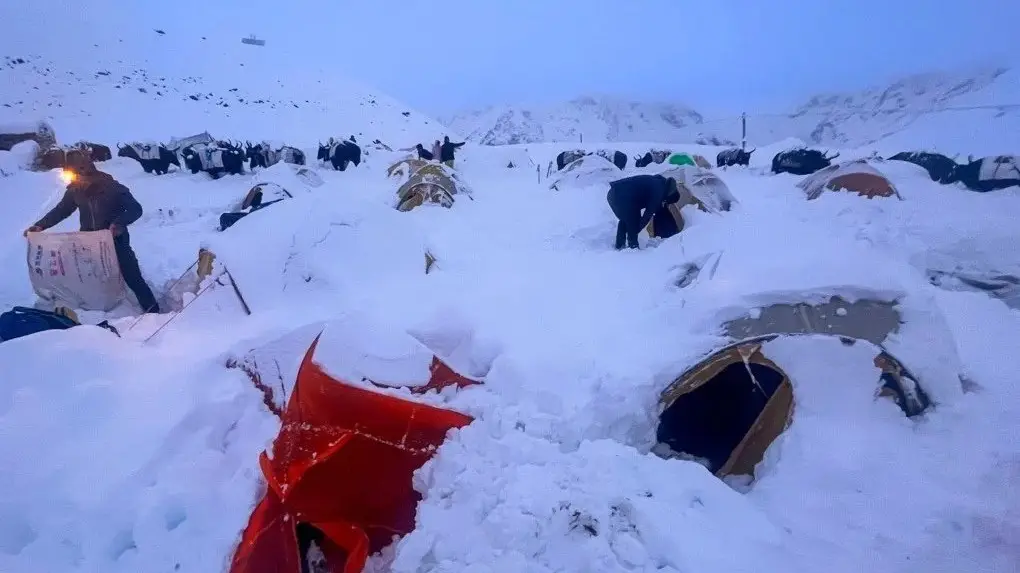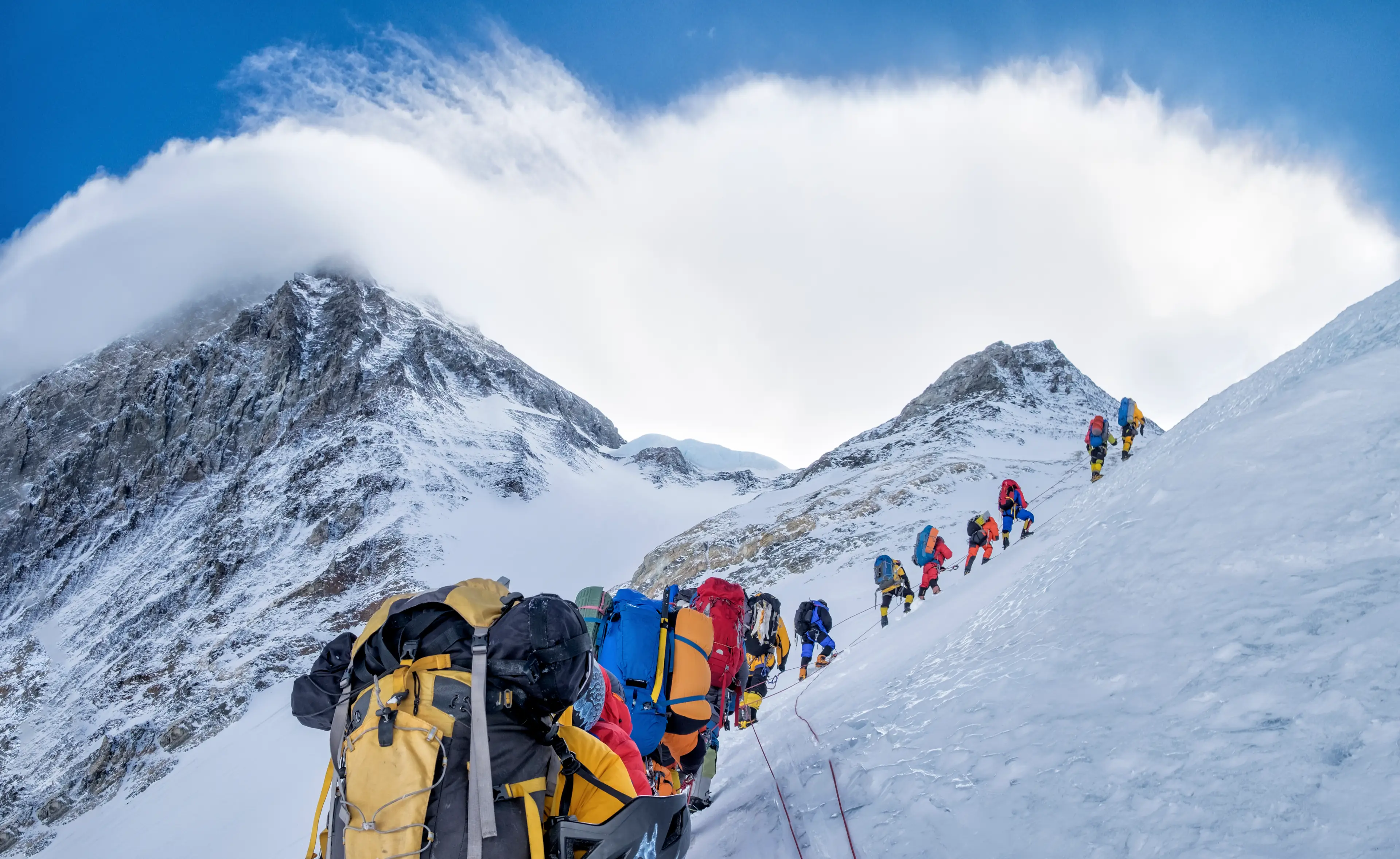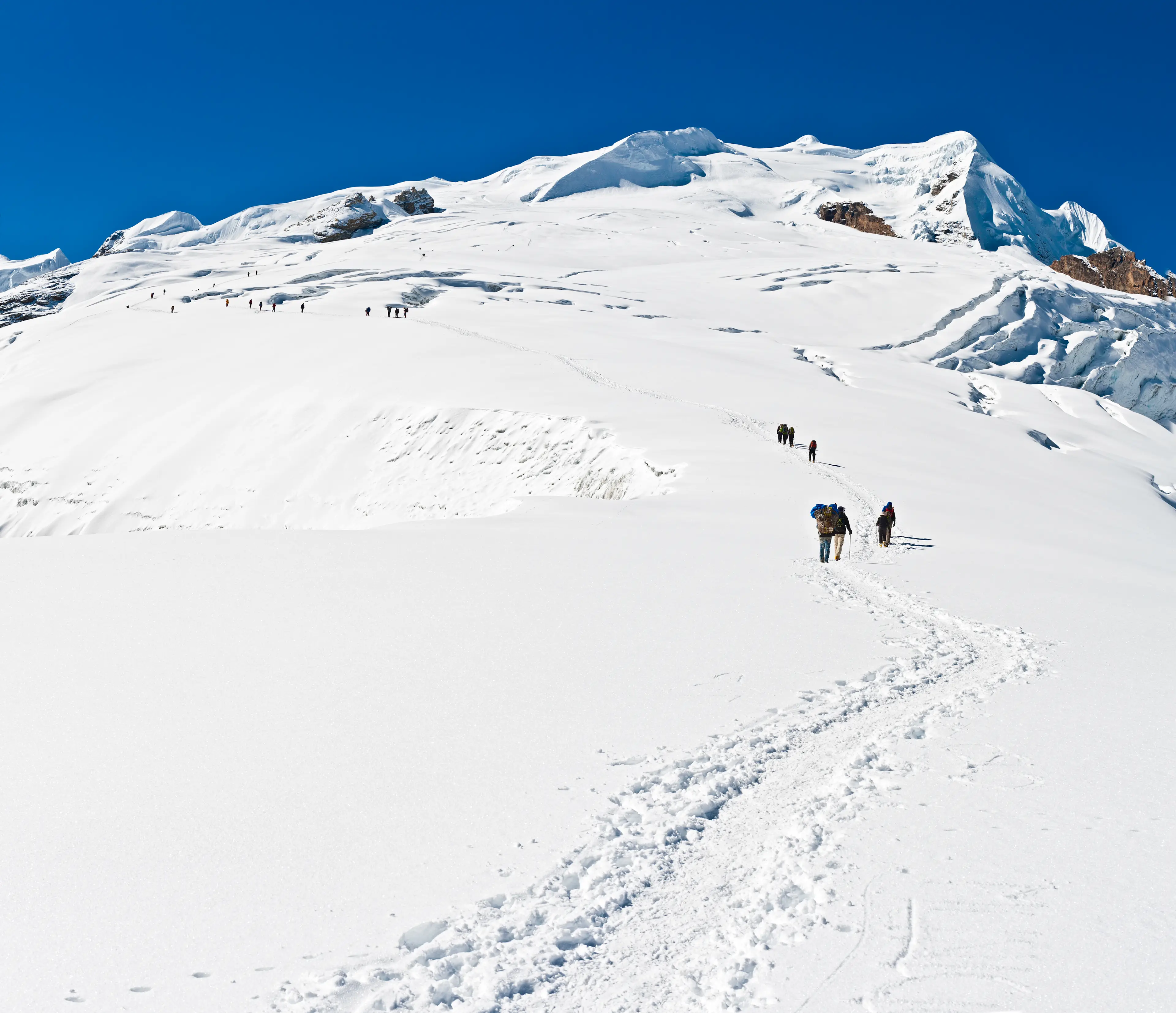
The body of a climber has been recovered from near Mount Everest as hundreds were trapped.
A desperate rescue effort was launched after blizzard conditions caused hikers to be stranded in deep snow over the weekend at the east of the mountain.
Snowfall began on Friday (3 October) evening and intensified as the weekend went on with it described as unusually high for this time of year.
The official Xinhua news agency reported last night that a total of 580 trekkers with more than 300 guides, yak herders and other support staff were evacuated.
Advert
With October marking peak season for hiking in the area, clear and mild weather is typically expected. Plus, the snowstorm fell during the big eight-day holiday across China, the ‘Golden Week Holiday’, when the trails were more likely to be filled with tourists and visitors.

At least one hiker is reported to have died according to state media after they got caught in a storm while ascending a Himalayan peak just south of Everest.
The South Korean national was initially reported missing over the weekend near the summit of the 21,250-foot Mera Peak in Nepal before the Nepal Mountaineering Association confirmed his death yesterday.
The Everest region remains temporarily closed to the public following the snowstorm.
Chen Geshuang began trekking with a group on Saturday, just hours before the storm hit and ended up retreating the next day with the snow about a metre deep.
“All of us are experienced hikers,” she told the BBC. “But this blizzard was still extremely difficult to deal with. I was so lucky to get out.”
Nature photographer Dong Shuchang was part of her hiking group and said he could ‘hardly sleep’ because the snowfall was so heavy.
"Our windbreakers and raincoats were no match for the snow. We were all drenched," he added.

Dong also noted that several people in their group of 20 showed signs of hypothermia and despite having been to the Himalayas more than a dozen times, he has ‘never experienced weather like this’.
“Everyone was moving slowly. The route was very slippery. I kept falling because of the ice,” he said of their exit from the trail.
One Chinese trekker also told Reuters that their group had been ‘too scared to sleep’ on Saturday as the snow was falling so heavily around their tents, forcing them to clear it every 90 minutes.
At least one hiker also died in other parts of western China due to a combination of hypothermia and acute mountain sickness.
Topics: Mount Everest, China, Travel